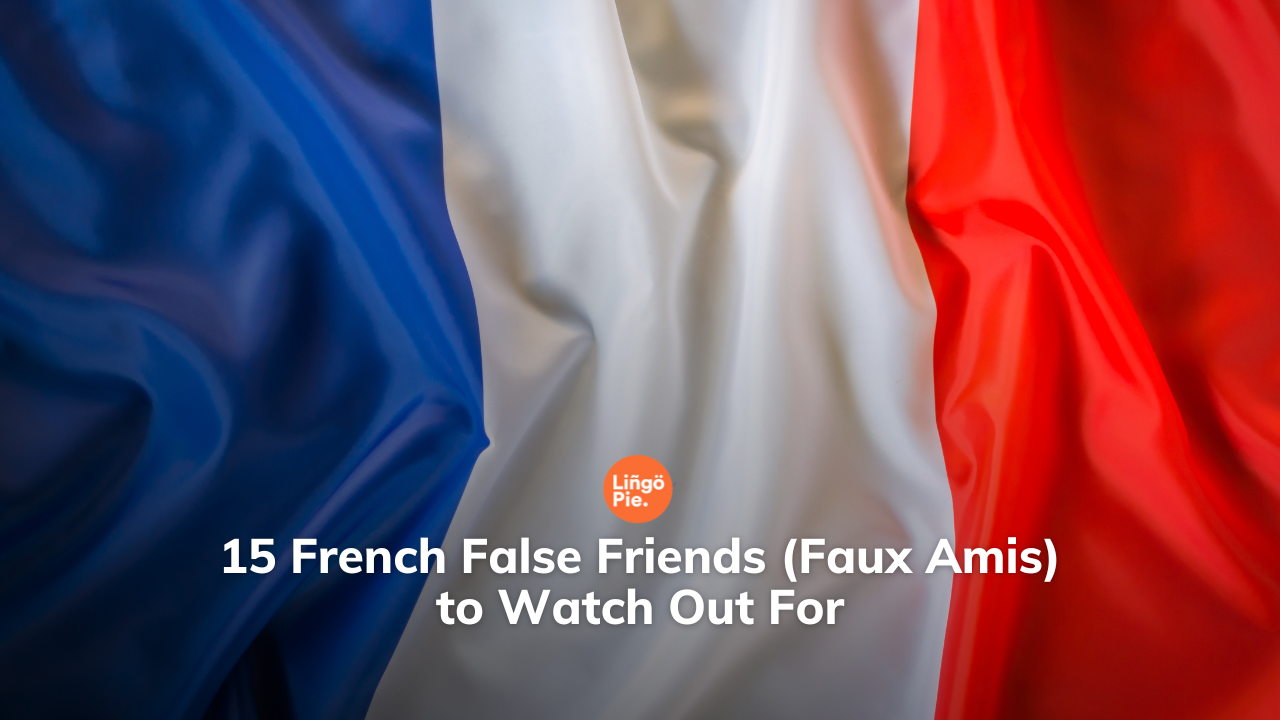Remember the global pandemic that put pretty much the whole planet in lockdown and facemasks for nearly two years? Sometimes I forget too. Luckily, most of life goes on as normal these days (for now at least), but there are some things that have changed forever since this crazy time; one of which is language.
Every spoken language across the world constantly updates itself alongside culture, art, politics, and societal progression - and apparently pandemics are hugely influential to their development too. Vocabulary, particularly in the most popular European languages, expands greatly every year with some of the most wonderful and wacky new words being used on a daily basis, especially if there’s an infectious virus flying around.
Covid-19 has encouraged the coining or popularisation of some super creative words and phrases in English, Spanish and French, after 2020s national lockdowns across Europe and the US saw a huge increase in protests, civil disobedience, police violence and Zoom calls.
Here’s a list of fifteen new words that coronavirus brought to the evolution of English, Spanish and French (whether they’re officially in dictionaries or not).

New words and phrases in English
1. Rona
Used as a nickname for COVID-19 a.k.a coronavirus, you’re likely to hear English pals talk about ‘Rona and how she hurt us’. It’s hard to believe that it's been over three years since the first lockdown, but Rona is still a hot topic in social situations. And of course, no one knew who she was before 2020.
2. Kettling
The US saw over 10,000 protests in 2020 whilst Britain wasn’t far behind for such a small collection of countries in comparison. Anti-racism, anti-transphobia, anti-vaccinations, anti-lockdown-measures (or ‘unlockdown’), anti-disrespect-to-NHS-healthcare-workers; name any social justice issue, we protested it. Alongside the increase of protests, police violence increased too with more murders, more violent behaviour and more arrests.
‘Kettling’ refers to a crowd-control technique where officers stand in a line and encircle a group of demonstrators, trapping them together in a confined area known as a ‘kettle’ (what we usually boil water in for our cups of tea!). It’s likely this term has been used since the 80s by the police force itself, but it wasn’t used publicly until it started to gain popularity on social media in 2020 after the murder of George Floyd and an influx of peaceful protests that occurred consequently. Thus, ‘kettling’ has become a common word used in conversation by the younger generations during the last few years.
Related:10 Popular Words and Phrases That Nobody Knew 20 Years Ago
3. Germaphobe
With increased levels of paranoia since the pandemic, the term ‘germaphobe’ is being thrown around a lot right now. A ‘germaphobe’ is a person who has ‘an irrational or disproportionate fear of germs and contamination’, which, to be fair, is an understandable predicament when you listen to the dialogue of the news every day. Even though the term ‘germaphobe’ might have been around for a while, it was only added to the official dictionary in 2022.
4. Covidiot
If you’re at all familiar with the English language, you’ll know that we love insulting people, to the point that we even have different collections of ‘soft’, ‘medium’ and ‘hard’ swear words… ‘Covidiot’ is one of the latest added to our ‘soft’ category, an insult to someone who didn’t adhere to public health advice when it was deemed necessary. If you knew anyone who walked into a shop without a mask or didn’t ‘social distance’ by standing two metres away from their friends, then this person could be referred to as a ‘covidiot’.
5. Quarantimes
A neologism of ‘quarantine times’, ‘quarantimes’ refers to the parts of our lives that were spent locked up at home, a popular hashtag used to commemorate moments and memories that happened whilst we were stuck in this period. It’s sort of a play on the phrase ‘good times’ which people often say when they remember something from their childhood or uni life.
New words and phrases in Spanish
1. Cuarentenear (phrase)
The pandemic affected every language across the word and one of the Spanish favourites used since 2020 is ‘cuanentenear’ which means both ‘to go into quarantine’ and ‘to be in quarantine.’ Four words in one. For example, estás cuarenteneando (I am in quarantine).
2. Confinamiento
The English equivalent of ‘lockdown’. This word was used all the time during the pandemic, and will be used for the rest of time, but no one was saying it at all four years ago.
3. Estatuafobia
This is a pretty funny one! So for those of you who don’t know, since the surge of human rights protests began in 2020 across many Western countries, not all of them were considered peaceful. It became a trend to push over, tear down, vandalise, deface, drown and destroy hundreds of statues of infamous glorified men. The likes of Christopher Columbus, Winston Churchill and George Washington had many statues built in memory of them out of respect for their political power and ‘legacy’. But now their glory has been taken by the younger generations as we recognise these men as slave owners, supremacists, racists, sexists and/or peadophiles.
‘Estatuafobia’ is a Spanish neologism created from the words for statue o ‘estatua’ and ‘fobia’ (or ‘phobia’, the Greek word for ‘fear’ that we use in many languages). The media used this word to refer to the rejection and the destruction//el rechazo y la destrucción of statues during the protests against racism in 2020 and 2021.
4. Zoomleaños
Another combination of two words, this time between ‘Zoom’, the video-conferencing software, and ‘cumpleaños’ which means birthday. Zoomleaños! Native Spanish speakers use this term to refer to a virtual party held on someone’s birthday. When most social gatherings were forbidden during the confinamiento, celebratory events moved to online rooms and connected amigos y familia across the globe.
5. Covidiota
Last but not least, you’ll be delighted to discover that Spanish speakers took ‘covidiot’ from English and Spanishified it into ‘covidiota’. It has exactly the same meaning, someone who is reckless about Covid rules, but naturally sounds more romantic.
Read also: Spanish Language Curse Words: Know When to Use Bad Spanish Words Like a Pro
New words and phrases in French
1. La quatorzaine
A linguistics professor working for the French dictionary said that Covid impacted the French language just as similarly as “what happened during the French revolution,” and this new term ‘la quatorzaine’ is a great place to start understanding how. La quatorzaine is the 14-day quarantine period that was applied to anyone changing countries or getting Covid. This term is a portmanteau of ‘quatorze’ (the number 14) and ‘la quaranatine’ (quarantine).
2. Infox
This new French neologism combines the words ‘infos’ meaning ‘news’ and ‘faux’ which means ‘fake’ or ‘false’. Put together, the word reads ‘infox’ which is the French equivalent of ‘fake news’. With the influx of media lies and manipulation and audiences’ increased awareness of these agendas, it’s no surprise that the French language has adapted itself to this dilemma. This word has been used more and more often over the last 10 years, but the over-exaggeration of news channels reporting on Covid saw an increase of infox discussions.
Read also: 15 French Slang Words and Phrases You Need to Know [Language Tips]
3. Télétravailler
Taken from ‘télé’ which can be added to many words to imply that they are done online, and ‘travailler’ which means ‘to work’, ‘télétravailler’ means to work-from-home or work-remotely which obviously became far more common during the pandemic, hence why this word was invented!
4. Racisé
Similarly to the rest of Europe and the US, political social justice topics were ripe in France during 2020. ‘Racisé’ means ‘racialised’ or ‘to describe someone as the subject of racist discriminatory behaviour’. It’s another term that’s been around for a long time but rose to popularity on social media and newspaper headlines during the killings, protests and riots that the pandemic encouraged.
5. Covidiot (masc.) / Covidiote (fem.)
Yep, that’s right, out of all the words I could have chosen to put here, I really wanted to see if the French had done it too… and indeed they have! ‘Les covidiots’ are what the French call a group of people who are labelled as acting irresponsibly during serious times of rules and regulations. Same as in English and Spanish! Clearly it was an insulting time for everyone…
So there’s just a few handfuls of interesting coronavirus-related words for you to digest, no matter which of the three languages you’re trying to scrub up on! For more entertaining content in English, Spanish and French, visit Lingopie to develop your vocabulary further through popular TV shows and movies.






![30+ Modern English Slang Terms For Money [Guide]](/blog/content/images/size/w300/2025/06/Slang-term-for-money.jpg)
![5 Official Spanish Language Tests To Show Your Proficiency Level [Guide]](/blog/content/images/size/w300/2025/06/Spanish-Language-Tests.jpg)

![Why Memorizing Spanish Words Won’t Make You Fluent [Tips]](/blog/content/images/size/w300/2025/06/how-to-practice-spanish-vocabulary.jpg)